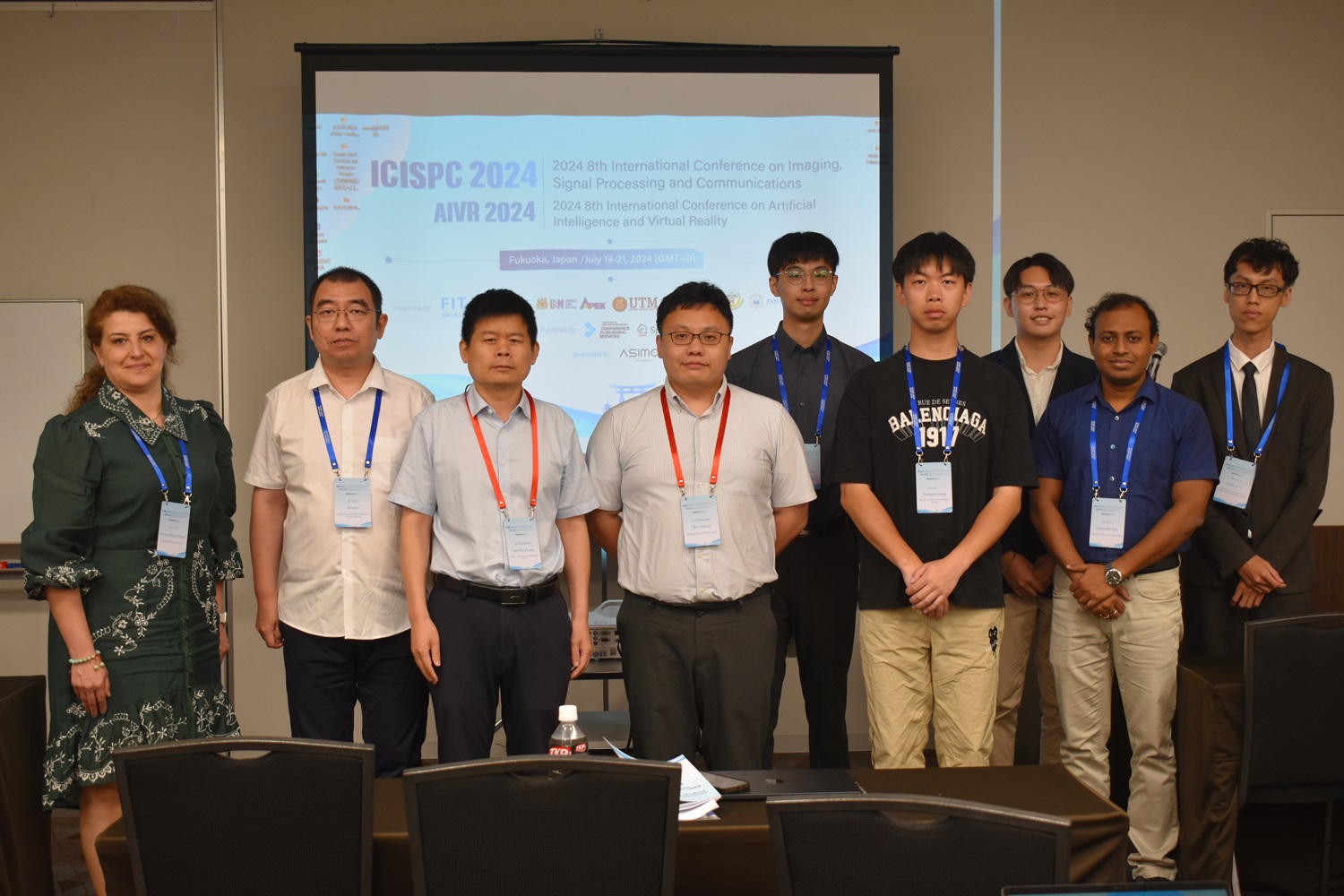The 8th International Conference on Artificial Intelligence and Virtual Reality was held in Fukuoka, Japan, July 19-21, 2024. We are very grateful to the international/national advisory committee, session chairs, and administrative assistants who selflessly contributed to the success of this conference. Also, we are thankful to all the authors who submitted papers, because of which the conference became a story of success. It was the quality of their presentation and passion to communicate with the other participants that made this conference a grand success.
| Date | Place | Publication | Indexing |
| July 19-21, 2024 | Fukuoka | Springer-SIST | EI Compendex, Scopus |
Congratulations to the winners of the best papers and the
best paper presentations.
Best papers:
SA2012
Peerawat Pannattee, Shogo Shimada, Vibol Yem, Nobuyuki Nishiuchi
Tokyo Metropolitan University, Japan
Investigating the Use of Deep Neural Networks for Predicting Perceived Realism in VR Scenes
SA2015
Anne Schwerk, Armin Grasnick
IU International University, Department IT & Engineering, Extended Artificial Intelligence, Germany
PHANTOMATRIX: A Framework for Predicting Physiological Reactions in Virtual Reality with Machine Learning
Best presentations:
Session 1:
SA1035-A
Chih-Chang Yu
Chung Yuan Christian University, Taiwan
An exploratory study of using slope feature and weakly supervised semantic segmentation for landslide detection in Taiwan
Session 2:
SA1011
Yuan-Kang Lee
National Taiwan University, Taiwan
Efficient Color Image Denoising using DWT-based Noise Estimation and Adaptive Wiener Filter
Session 3:
SA2016-A
Anne Schwerk
IU International University, Germany; Berlin Institute of Health, Berlin, Germany
PHANTOMATRIX: Explainability Dimensions of Affective Computing
Session 4:
SA2008
Adrien Verhulst
Sony Computer Science Laboratories, Inc., Japan
Exploring the Influence of Immersion and Social Characteristics on Social Presence when Conversing with a Conversational Agent
Session 5:
SA1016
Xun Zhang
Harbin Institute of Technology, China
A Measurement Pairing Method Based on MAP Criterion for Dense Targets in Dual-Sensor System
Session 6:
SA2035
In Kyu Park
Inha University, South Korea
Efficient 3D Human Body Reconstruction from Monocular Video with Depth-Guided Learning
Session 7:
SA2047
Chung Kwan LO
The Education University of Hong Kong, Hong Kong, China
An Exploratory Study of Using AI Tools to Analyse Classroom Discourse Data
SA2107
Mesut Alptekin
Paderborn University, Germany
Quantitative and Qualitative Literature Review of Augmented Reality in Teaching and in Technical Laboratories since 2010
Session 8:
SA2029
Dante Silva and Yza Mae A. Cadid
Mapua University, Philippines
Neural Network-Particle Swarm Optimization Approach for Prediction of Deformation and Parallel Bending Strength of Guadua angustifolia Kunth
Session 9:
SA1057
Wanwan Li
University of Tulsa, USA
PM4Bag: A Scriptable Parametric Modeling Interface for Conceptual Bag Design Using PM4VR
Session 10:
SA2011
Enes Yigitbas
Paderborn University, Germany
Effects of Human Avatar Representation in Virtual Reality on Inter-Brain Connections
SA2077
Hanin Hamed Hilal Al Naamani
University of Stirling, Sultanate of Oman
VR Game Development: Team-building Exercises Gamified




